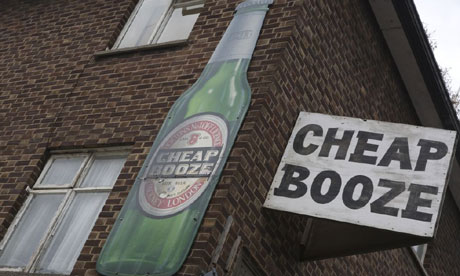
Happy hours should be banned, health warnings put on cans and bottles and drunk people refused service, according to the UK's accident and emergency doctors ahead of student freshers' weeks.
The College of Emergency Medicine (CEM) is also urging an end to the sale of alcohol at petrol stations, a reduction in the drink-drive limit from 80mg per 100ml of blood to 50mg per 100ml, advertisements not targeted at young people and the introduction of a minimum price per unit of alcohol.
The doctors made their call for vigorous action to tackle alcohol-related problems just before the start of freshers' weeks, which bring a significant rise in admissions to casualty departments. Dr John Heyworth, CEM's president, said: "Our message is simple – let's all enjoy alcohol sensibly. We don't want to stop anyone from having fun, especially not during freshers' week, which is a time for making friends and social integration. But we want to reinforce the message that drinking in moderation will prevent a whole host of unwanted consequences, from health impacts to financial implications, and the heavy burden on our ambulance services and hard-pressed emergency departments."
Happy hours lead to problems because they encourage too many young people to drink too much too early in the evening, said Heyworth. Recent NHS figures showed that hospitals in England dealt with 945,469 admissions due to alcohol in 2008/09.
The doctors also want all door and bar staff to undergo mandatory training to identify people who have already drunk too much so that they cannot continue consuming alcohol. Anyone who has passed their driving test within the previous five years should not be allowed to have more than 20mg of alcohol in their system if they are breathalysed, they add.
"The government is committed to taking tough action to tackle problem drinking, which includes reviewing the price of alcohol, stopping supermarkets from selling alcohol below cost price and overhauling the licensing act to allow local communities to tackle problem premises", said a Department of Health spokeswoman. "We will work across government, society and communities to challenge negative social norms and promote the positives."

